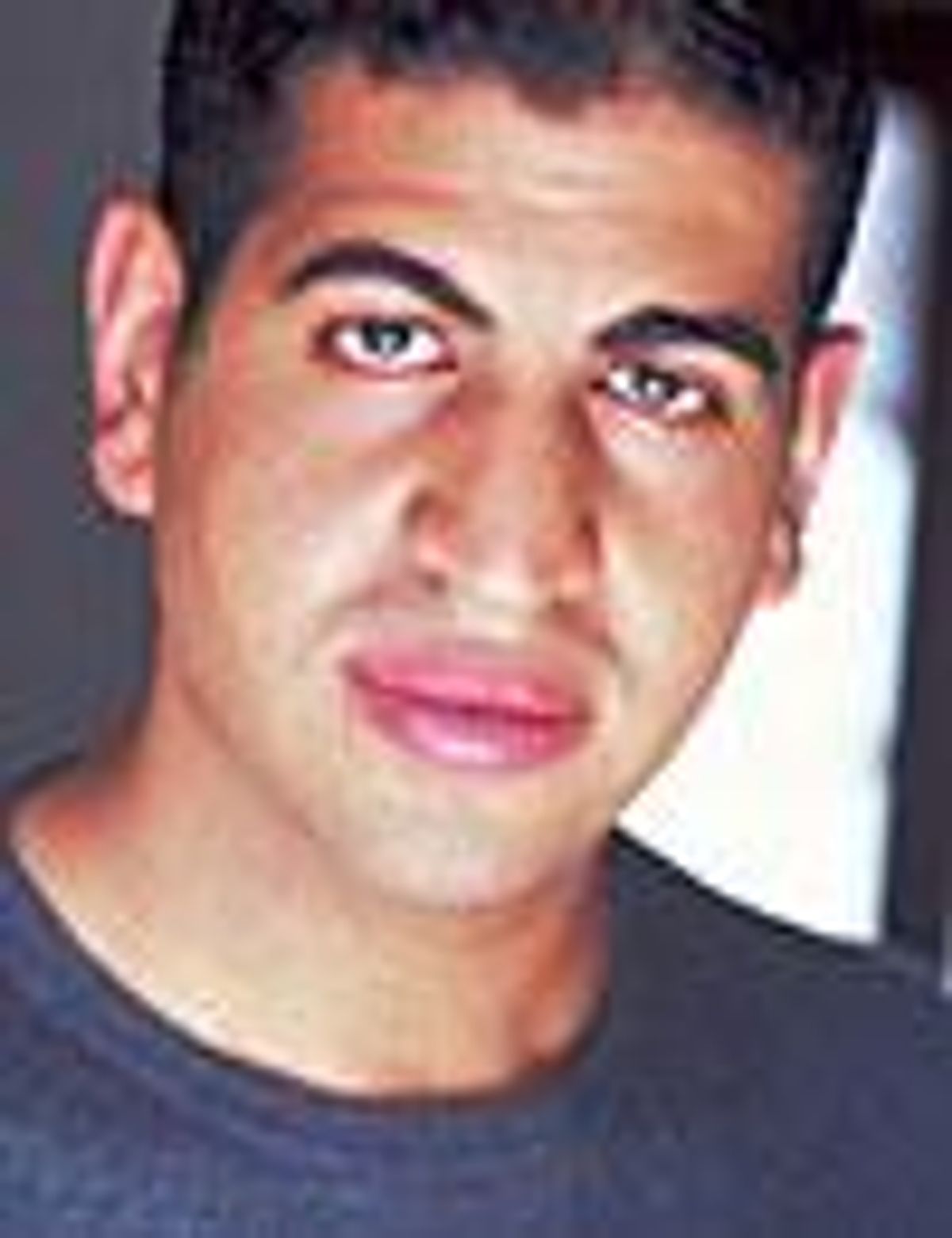
Cast as a gay Muslim in an L.A. play, out Muslim actor and journalist Ramy Eletreby found himself the center of a controversy that led other Muslims to quit the production
June 21 2005 12:00 AM EST
November 17 2015 5:28 AM EST
By continuing to use our site, you agree to our Private Policy and Terms of Use.

In a time when religion is a favorite excuse for homophobia, a gay Muslim character is bound to create a stir. When Los Angeles-based Cornerstone Theater decided to feature such a character in its latest production, A Long Bridge Over Deep Waters, several Muslims involved with the show objected, and three Muslim actors dropped out altogether. The play--which follows the faiths of 10 cultural communities throughout the history of Los Angeles, including African-American Christians, Catholic immigrants, atheists, Muslims, and religious LGBTs--puts the Muslim and LGBT segments side by side, because the 1953 founding of the Islamic Center of Southern California and the 1968 establishment of the gay Metropolitan Community Church are chronologically close. Playwright James Still created the character, Tameem, as a way to connect the two communities.Tameem's role is filled by Ramy Eletreby, 24, who is himself a gay Muslim--one of three in the production's cast. A passionate journalist as well as a talented actor--he writes for the gay magazine In Los Angeles--Eletreby was raised in Orange County and graduated from the University of California, Irvine, with degrees in theater and English. He spoke with Advocate.com the day after the controversy was reported in the Los Angeles Times.Advocate.com: Tell us a little bit about your character in Deep Waters.Eletreby: I play the character of Tameem. This man is a victim of a hate crime. He enters onstage bloodied and then he tells his sister that it's because he's Muslim, and then you find out in the next scene that it's actually because he's gay and Muslim. The character is dealing with trying to reconcile these seemingly conflicting identities when his religion--and several [other] religions--views that as an abomination. It's his struggle to reconcile himself.The Los Angeles Times article mentions that there are three gay Muslim actors in the company, including you; clearly, the other actors were already aware that there were gay Muslims among them. So why do you think a gay Muslim character was such a big issue for them? If an actor believes that homosexuality is wrong and then is involved in a scene that deals with that directly, it's a little bit different from having a cast member who is gay. It's the fact that you're helping promote it. It's putting it in the spotlight when a lot of people would rather it not be in the spotlight.Aside from the three actors who left, how has the rest of the company reacted to the controversy?Probably most of the company doesn't really know because my scene stands apart from others; the play is really 10 distinct scenes. I'd say that the company officials--the director and playwrights--were disappointed. Cornerstone's aim is always to bridge communities, and not to cause any sort of negativity out there [or try] to divide people. Whenever people choose not to take part in something, that's always disappointing.How have your family and friends handled it?My parents actually haven't seen this play yet. They did find out that the character was a gay Muslim the other day. That caused a bit of an issue and we discussed it. We didn't come to any conclusion. Right now it's a little difficult. I cant really go into detail. We're not speaking about certain things.When did you first come out?There was never an official outing. I let people know over the course of the last eight years or so, just as I became comfortable enough with people and I felt that they wouldn't be judgmental or anything like that.How do you feel about the situation?I find myself a little offended that the idea of there being a gay Muslim is being treated like a circus act. I don't appreciate being made a spokesperson for the whole community. I didn't expect so much exposure, and I'm a little uncomfortable. The L.A. Times article made it sound like we were turning against each other. That paints a picture that intolerant Muslims are making people leave the religion, and that's not the case at all. There are several straight Muslims there who are brilliant, beautiful, tolerant people. So I'm also a little bit disconcerted with the fact that people are taking this story to mean that there is unrest within the community itself. It's just getting a little bit too much for me.When so many people seem to believe that "gay" and "religious" can't go together, how do you personally reconcile your identity as a gay person with your faith?It's only been lately that I've been trying to work on it--I used to ignore it. I'm doing research on religions in general: How clearly is homosexuality mentioned in the Koran or any of the other books or people's teachings? Is it a weak argument? Would I be able to get past it? So right now I'm in the middle of searching for an answer to your question.